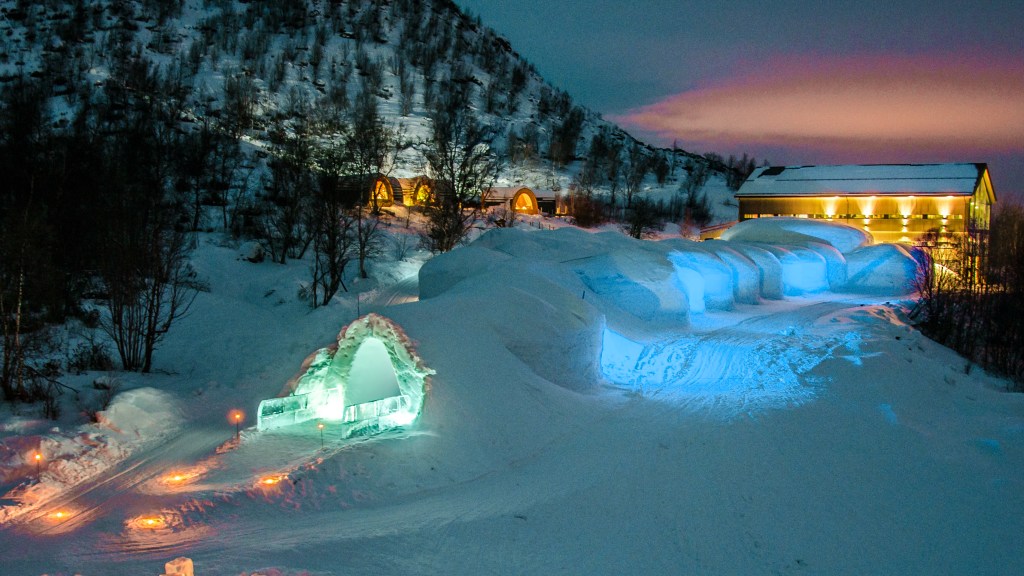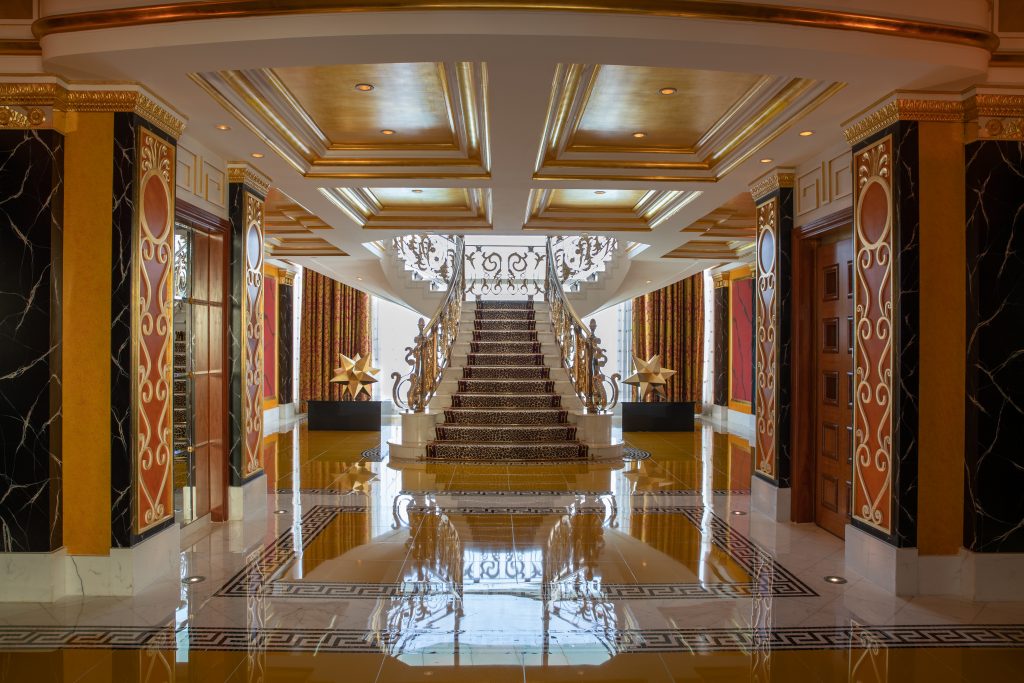Unique Luxury Hotels With Historical Significance And Charm
Unique luxury hotels with historical significance and charm offer travelers an extraordinary opportunity to experience the past while indulging in modern comforts. These remarkable establishments are often nestled within historically significant buildings, allowing guests to immerse themselves in stories and architectural marvels that have withstood the test of time. From the opulence of grand ballrooms to the subtle whispers of history in antique furnishings, the allure of these hotels beckons those seeking both luxury and a connection to the cultural heritage of their locations.
Within this exploration, we delve into the architectural styles that define these luxurious retreats, the cultural significance they uphold, and the unique features that distinguish them from contemporary accommodations. As we journey through the enchanting world of historical hotels, we will also highlight the efforts made towards sustainability and preservation, ensuring these treasures continue to enchant future generations.
Historical Overview of Unique Luxury Hotels
Luxury hotels often serve as more than just places of accommodation; they are repositories of history and culture that reflect the legacies of the past. These hotels tell stories through their architecture, design choices, and the significant events that transpired within their walls. Understanding their historical context is essential for appreciating their unique charm and character.
The evolution of luxury hotels is deeply intertwined with pivotal historical moments that have shaped cities, nations, and even entire regions. The architecture of these establishments often showcases styles that reflect the era in which they were built, offering guests a glimpse into the aesthetics and values of that time. For instance, hotels constructed during the Victorian era often feature ornate designs, while mid-century hotels might showcase minimalist aesthetics. A prime example is the Château Frontenac in Quebec City, a landmark hotel that has hosted numerous dignitaries and royal guests, illustrating the importance of historical context in shaping its luxurious offerings.
Impact of Historical Events on Hotel Design
Historical events play a crucial role in influencing the architectural styles and designs of unique luxury hotels. These influences can be seen throughout various regions, where specific events prompted significant changes in design and embellishments. The following points highlight how major historical events have shaped the luxury hotel landscape:
- The Renaissance: The rebirth of classical architecture during the Renaissance era led to the creation of stunning hotels like the Hotel Danieli in Venice, showcasing intricate facades and opulent interiors that reflect the artistic movements of the time.
- The Industrial Revolution: This period brought modern amenities into luxury hotels, as seen in the Savoy Hotel in London, which was one of the first to offer electric lighting and running water, revolutionizing the guest experience.
- World War II: Following the war, many hotels faced reconstruction and modernization. The Hotel Adlon in Berlin was rebuilt to honor its historical significance, featuring designs that pay homage to its heritage while integrating contemporary comforts.
- Colonial Influences: Colonial history has led to unique hotel architectures, such as the Raffles Hotel in Singapore, which embodies colonial charm and luxury, attracting guests to its rich past and elegant design.
Understanding these historical connections enhances the appreciation of the luxury hotel experience, as guests are not merely enjoying lavish surroundings but are also stepping into a space steeped in history. Each unique luxury hotel holds tales of triumph, elegance, and transformation, making their stories just as important as the services they offer.
Architectural Styles and Design Influences

Luxury hotels with historical significance feature a myriad of architectural styles that not only encapsulate the aesthetic preferences of their eras but also echo the cultural stories of their locales. These hotels serve as living museums, showcasing the evolution of design and craftsmanship while offering modern luxury to discerning guests. The unique blend of history and contemporary elegance creates an unforgettable experience that transports visitors through time.
The design of these luxury hotels often reflects the rich tapestry of their surroundings, with influences drawn from local traditions, natural landscapes, and historical events. The marriage of local materials and construction techniques with opulent details results in structures that are both authentic and luxurious. Restoration processes play a crucial role in preserving these historical treasures, ensuring that while the charm of the past is maintained, the comforts of modern living are seamlessly integrated.
Prominent Architectural Styles
Several architectural styles can be identified in luxury hotels with historical significance. Understanding these styles provides insight into the cultural and historical narratives that shape the hospitality landscape. The following are some prominent architectural styles found in such hotels:
- Gothic Revival: Characterized by pointed arches, intricate stone carvings, and soaring ceilings, this style evokes a sense of grandeur. Hotels like the St. Pancras Renaissance Hotel in London exemplify this with their stunning façade and detailed interiors.
- Art Deco: Emerging in the 1920s and 1930s, Art Deco features bold geometric shapes, rich colors, and luxurious materials. The iconic Hotel Del Coronado in California showcases this style with its distinctive red roof and ornate woodwork.
- Colonial: Reflecting the influence of colonial powers, these hotels often feature verandas, large windows, and tropical motifs. The Raffles Hotel in Singapore is a prime example, combining colonial charm with modern elegance.
- Neoclassical: Inspired by the classical architecture of ancient Greece and Rome, neoclassical hotels emphasize symmetry and grandeur. The famous Waldorf Astoria in New York City embodies this style with its majestic columns and opulent interiors.
- Victorian: This style is marked by intricate detailing, asymmetrical shapes, and vibrant colors. The Fairmont Banff Springs Hotel in Canada, often referred to as the “Castle in the Rockies,” is a stunning representation of Victorian architecture.
Design influences in these hotels not only celebrate their historical roots but also cater to modern sensibilities. The careful selection of furnishings, artwork, and décor elements often reflects the local culture, allowing guests to immerse themselves in the unique heritage of the region.
Restoration Processes for Historical Integrity, Unique luxury hotels with historical significance and charm
Restoring luxury hotels with historical significance requires a balance between preserving the authentic character and providing modern luxury. The restoration processes involve meticulous planning and execution, focusing on maintaining historical integrity while updating amenities for contemporary guests.
Key aspects of successful restoration include:
- Research and Documentation: Understanding the original design and materials used is crucial. Historical archives, photographs, and expert consultations guide the restoration efforts.
- Material Authenticity: Using original or historically accurate materials ensures that the hotel retains its charm. For instance, reclaimed wood, period-appropriate fabrics, and traditional craftsmanship are often prioritized.
- Modern Upgrades: Integrating modern technology and amenities, such as high-speed internet and energy-efficient systems, helps meet the needs of today’s travelers without compromising historical aesthetics.
- Community Involvement: Engaging local historians, artisans, and residents not only enhances the authenticity of the restoration but also fosters community pride and support.
By carefully navigating these restoration processes, luxury hotels can preserve their storied pasts while providing an enriching experience that respects their historical significance and offers modern comforts—a true celebration of the art of hospitality.
Cultural Significance and Local Heritage
Unique luxury hotels often act as custodians of local culture and traditions, preserving the rich tapestry of heritage while offering guests a peek into the past. By providing a blend of opulence and authenticity, these establishments foster an environment where local customs and practices thrive, enriching the travel experience. Their influence extends beyond mere accommodation, as they play a significant role in sustaining the cultural narratives of their surroundings.
Luxury hotels engage deeply with their local communities, often collaborating with artisans, chefs, and cultural historians to ensure an immersive experience for their guests. This engagement not only supports the local economy but also helps in the preservation of traditional crafts and culinary practices. The hotel’s decor, culinary offerings, and event programming often reflect the historical and cultural significance of the surrounding area.
Examples of Luxury Hotels Engaging with Local Heritage
Numerous luxury hotels around the world exemplify the commitment to preserving local traditions and culture while providing memorable experiences for their guests. These hotels create a symbiotic relationship with their communities, often hosting cultural events and workshops that highlight local heritage.
Among them, the following hotels stand out:
- Hotel de Russie, Rome: This iconic hotel not only offers stunning views of the Piazza del Popolo and the Borghese Gardens but also hosts workshops on traditional Italian cooking. Guests can learn to make pasta from local chefs, fostering a deeper connection with Italian culture.
- Raffles Hotel, Singapore: Renowned for its colonial architecture, Raffles engages visitors with its rich history through guided tours, showcasing its heritage and the role it played in Singapore’s development. The hotel also organizes local art exhibitions, promoting Singaporean artists and their work.
- Alila Villas Uluwatu, Bali: Nestled on the cliffs of Uluwatu, this luxury resort offers cultural immersion experiences, such as Balinese dance performances and traditional cooking classes, which allow guests to appreciate the island’s rich heritage and customs.
Through these initiatives, luxury hotels are not just places to stay; they become gateways to understanding and experiencing the cultural significance of their locales. Each experience offered is curated to enhance the guest’s understanding of local traditions, creating lasting memories that honor the heritage of the destination.
“Luxury is not just in the experience itself but in the way it connects us to the history, artistry, and craft of a place.”
Unique Features and Amenities
Luxury hotels with historical significance offer an array of unique features and amenities that set them apart from contemporary hotels. These amenities often reflect the rich history of the property and provide guests with an immersive experience that blends comfort with a deep connection to the past. From opulent furnishings to bespoke services, these hotels deliver a distinct charm that captivates discerning travelers.
The uniqueness of these hotels lies not only in their architectural grandeur but also in the exclusive experiences they provide. Many luxury hotels with historical roots curate specialized activities that allow guests to engage with the local culture and the hotel’s storied past. This includes guided historical tours led by expert historians, themed dining experiences that celebrate local cuisine, and interactive workshops that showcase traditional crafts.
Exclusive Experiences and Unique Features
Guests at these unique luxury hotels can expect an array of amenities designed to enhance their stay and deepen their appreciation of the hotel’s heritage. These features often include carefully curated collections of art and artifacts, antique furnishings, and personalized services that reflect the culture and history of the region. Below are notable examples that illustrate the distinct offerings of these hotels:
- Guided Historical Tours: Many hotels offer exclusive access to guided tours that explore the property’s history, architecture, and surrounding area, often led by knowledgeable historians.
- Themed Dining Experiences: Guest can indulge in culinary journeys that often reflect the region’s heritage, such as dining in period-themed rooms or enjoying a tasting menu inspired by historical recipes.
- Antique Furnishings: The presence of meticulously preserved antique furniture, artworks, and decor provide a glimpse into the past, making each room a historical showcase.
- Historical Artifacts: Many hotels proudly display artifacts from their history, such as original documents, photographs, and heirlooms that narrate the story of the hotel’s legacy.
- Luxury Spa Treatments: Some historical hotels incorporate regional traditions into their spa offerings, using locally sourced ingredients and ancient techniques for treatments.
- Exclusive Access to Local Events: Guests may receive invitations to local festivals, art exhibitions, and cultural events, further immersing them in the local heritage.
“Staying in a historical luxury hotel is not just about comfort; it’s about stepping into a living piece of history.”
Guest Experiences and Testimonials

The allure of unique luxury hotels often lies in their rich history and character, which significantly enhances the guest experience. Travelers seek not only a lavish stay but also a connection to the past, a story that unfolds within the walls of these historic properties. From the moment guests step into the lobby, they are enveloped in an ambiance that speaks volumes of the eras gone by, making the experience truly unforgettable.
The historical significance of these hotels often transcends their architectural beauty, providing guests with immersive narratives that enrich their stay. Such experiences include guided tours of the property, personal anecdotes shared by staff, and the opportunity to stay in rooms that have hosted dignitaries and celebrities. These elements resonate deeply with guests, creating lasting memories that are often recalled fondly in testimonials.
Memorable Guest Experiences
Guests frequently share experiences that highlight the unique charm and historical significance of luxury hotels. These narratives not only capture the essence of their stay but also illustrate how history is woven into the fabric of their experiences. Below are a few notable anecdotes from guests:
“Staying at the historic Hotel del Coronado was like stepping back in time. I could almost hear the whispers of the past as I wandered through the halls. The vintage decor and the stories of Hollywood legends added a magical touch to my vacation.” – Sarah M.
“At The Savoy in London, I had the pleasure of dining in the same restaurant where famous writers and musicians once discussed their craft. It was a surreal experience to sip champagne in a place so rich with history.” – James R.
“The moment I checked into The Ritz Paris, I was enveloped in a world of elegance and sophistication. The hotel’s historical significance and its stunning architecture made my stay a fairy tale.” – Emily W.
These testimonials reflect how the historical narratives of these luxury hotels enhance the overall guest experience, allowing visitors to feel a profound connection to both the property and its past.
The unique features and amenities offered by these historical hotels play a significant role in creating memorable experiences. From luxurious spa treatments inspired by ancient traditions to gourmet dining options that showcase local culinary heritage, every detail is curated to make each stay extraordinary. Here are some remarkable amenities highlighted by guests:
“The spa at Château de Bagnols, a 13th-century castle, was extraordinary. I enjoyed a massage that utilized local herbs and oils, truly a blend of history and wellness.” – Olivia T.
“The rooftop terrace at the Hotel Nacional de Cuba offered stunning views and a refreshing mojito that felt like a celebration of Cuban culture.” – Marco L.
Guest experiences at unique luxury hotels reiterate the significance of history in crafting memorable stays. These testimonials serve as a testament to how the stories of the past are not just for reflection but become an integral part of the luxury experience, enriching travelers’ lives in ways they cherish forever.
Sustainability and Preservation Efforts
Unique luxury hotels with historical significance play a crucial role in promoting sustainability while preserving their heritage. These establishments are at the forefront of adopting eco-friendly practices designed to minimize their environmental impact and honor the cultural narratives embedded in their architecture. By balancing modern luxury with sustainability, they ensure that their historical charm and local heritage endure for future generations.
Luxury hotels with historical significance often implement a variety of sustainable practices that reflect their commitment to the environment. These practices not only enhance the guest experience but also contribute significantly to the preservation of the sites.
Sustainable Practices in Historical Hotels
A number of unique luxury hotels have successfully integrated sustainability into their operations while maintaining their historical integrity. The following are notable practices and examples:
- Energy Efficiency: Many hotels utilize advanced energy management systems to reduce consumption. For instance, the historic Hotel des Arts in Paris has installed energy-efficient lighting and heating systems, significantly lowering its carbon footprint.
- Water Conservation: Luxury hotels often implement water-saving technologies such as low-flow fixtures and rainwater harvesting systems. The Alvear Palace Hotel in Buenos Aires employs rainwater collection systems that are used for irrigation, maintaining its lush gardens with minimal resource waste.
- Locally Sourced Ingredients: To support local economies and minimize transportation emissions, hotels like the Ritz Paris source their culinary ingredients from local markets, ensuring that their dining offerings are fresh and sustainable.
- Restoration and Maintenance: Hotels like The Fairmont Chateau Lake Louise in Canada invest in restoration projects that use traditional materials and techniques, preserving their architectural authenticity while enhancing energy efficiency.
- Waste Management Programs: Many luxury hotels implement robust recycling and composting programs. The Savoy in London has introduced extensive waste reduction initiatives, leading to a significant decrease in landfill contributions.
Through these initiatives, luxury hotels not only provide a lavish experience but also embody a commitment to preserving the environment and heritage.
Case Studies of Successful Integration
Several luxury hotels stand out for their exemplary integration of sustainability into historical preservation efforts without compromising their heritage.
- Hotel Bel-Air, Los Angeles: This hotel has undergone a significant renovation that emphasizes ecological sustainability. The restoration preserved its iconic Spanish colonial architecture while introducing sustainable landscaping and energy-efficient systems.
- The Greenbrier, West Virginia: This historic resort incorporates sustainable farming practices in its on-site gardens, growing much of the produce served in its restaurants. The use of native plants in landscaping helps maintain local biodiversity and reduces water usage.
- Hotel Adlon Kempinski, Berlin: Located near Brandenburg Gate, this hotel has implemented smart building technology to optimize energy use while maintaining historic standards. It features a roof garden that not only enhances the aesthetics but also improves thermal insulation.
These examples illustrate how luxury hotels with historical significance can effectively marry modern luxury with sustainability, preserving their unique heritage while contributing positively to the environment and local communities.
Future Trends in Luxury Historical Hotels: Unique Luxury Hotels With Historical Significance And Charm

The landscape of luxury historical hotels is evolving as new trends emerge that reflect changing societal values, technological advancements, and shifting guest expectations. As travelers increasingly seek unique experiences that combine the allure of history with modern amenities, the hospitality industry is responding with innovative approaches to heritage properties. This section explores the future of luxury historical hotels, highlighting emerging trends, promising markets, and the evolving expectations of discerning travelers.
Emerging Trends in Luxury Historical Hotels
The integration of technology and sustainability into the luxury hotel experience is becoming paramount. Guests now expect seamless services that enhance their stay while respecting the historical integrity of the properties. The following trends are shaping the future of luxury historical hotels:
- Technology Integration: Luxury hotels are using apps for personalizing guest experiences, from virtual concierge services to smart room controls, ensuring that modern conveniences do not overshadow the historical charm.
- Experience-Centric Offerings: Hotels are curating experiences that connect guests with local history, such as guided tours, historical reenactments, and culinary experiences that reflect the region’s heritage.
- Adaptive Reuse: Properties that have been creatively repurposed from their original functions—such as former banks, schools, or factories—are gaining popularity, offering guests a distinctive blend of past and present.
Promising Markets for Unique Luxury Hotels
Several regions around the world are poised to become hotspots for luxury historical hotels, as they boast rich cultural heritages and unique architectural styles. Areas showing significant potential include:
- Eastern Europe: Countries like Poland and Hungary are experiencing a resurgence in tourism, with abundant historical sites and architecture ripe for luxury hotel development.
- South America: Nations such as Peru and Colombia offer rich colonial histories, with opportunities for luxury hotels that celebrate indigenous cultures and historical landmarks.
- Asia: Emerging economies like Vietnam and India are seeing an increase in interest for luxury stays that embody traditional aesthetics while incorporating modern comforts.
Evolving Guest Expectations
Today’s luxury travelers have a greater appreciation for authenticity and cultural immersion. They seek accommodations that not only provide comfort but also tell a story and reflect the destination’s character. The following expectations are driving the evolution of luxury historical hotels:
- Personalized Experiences: Guests desire customized services that cater to their individual interests, such as bespoke itineraries that highlight local history and culture.
- Sustainable Practices: Travelers increasingly prioritize eco-friendly initiatives, such as energy-efficient operations and locally sourced cuisine, when choosing their accommodations.
- Community Engagement: Hotels that foster connections with the local community through events and collaborations resonate more with guests seeking genuine interactions.
If you’re planning a lavish getaway, exploring the best luxury hotels in my city can elevate your experience. Each of these hotels offers unique amenities and stunning views, ensuring that your stay is nothing short of exceptional. From world-class dining to indulgent spa treatments, these accommodations cater to your every need, providing a perfect blend of comfort and elegance.
If you’re seeking a lavish getaway, look no further than exploring the finest accommodations available. Discovering what are the best luxury hotels in my city can transform your travel experience, offering unmatched comfort and elegance. From exquisite dining options to stunning views, these hotels promise a memorable stay that caters to all your desires.








